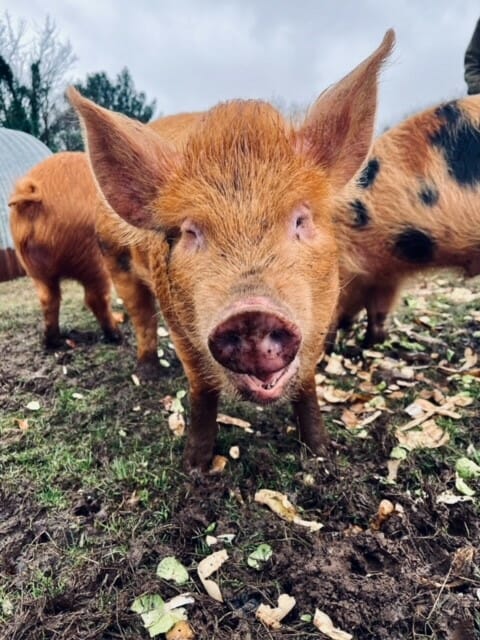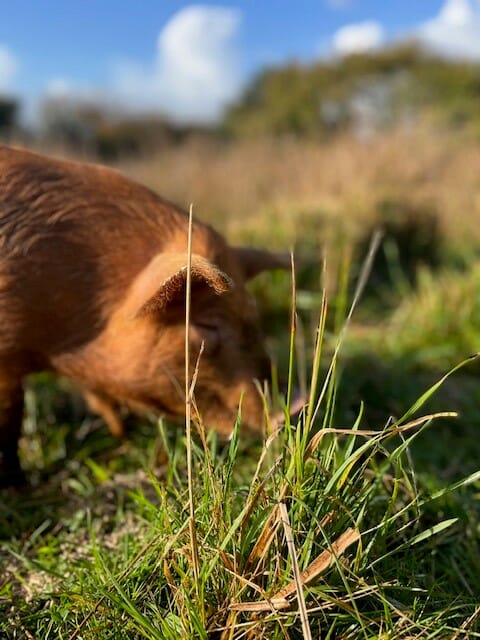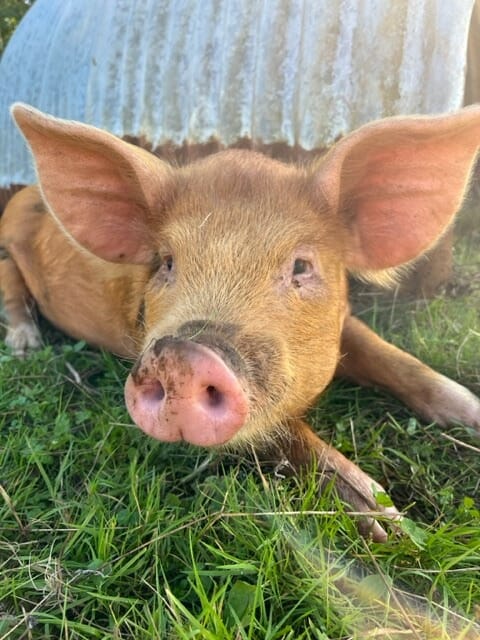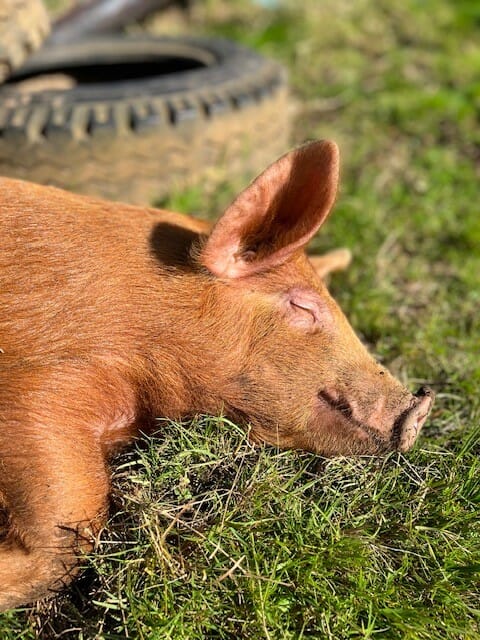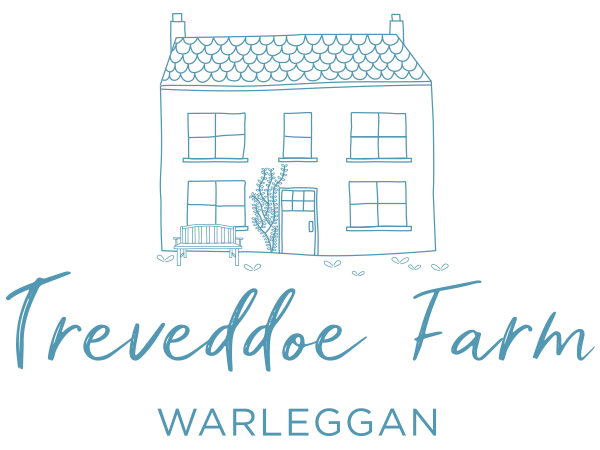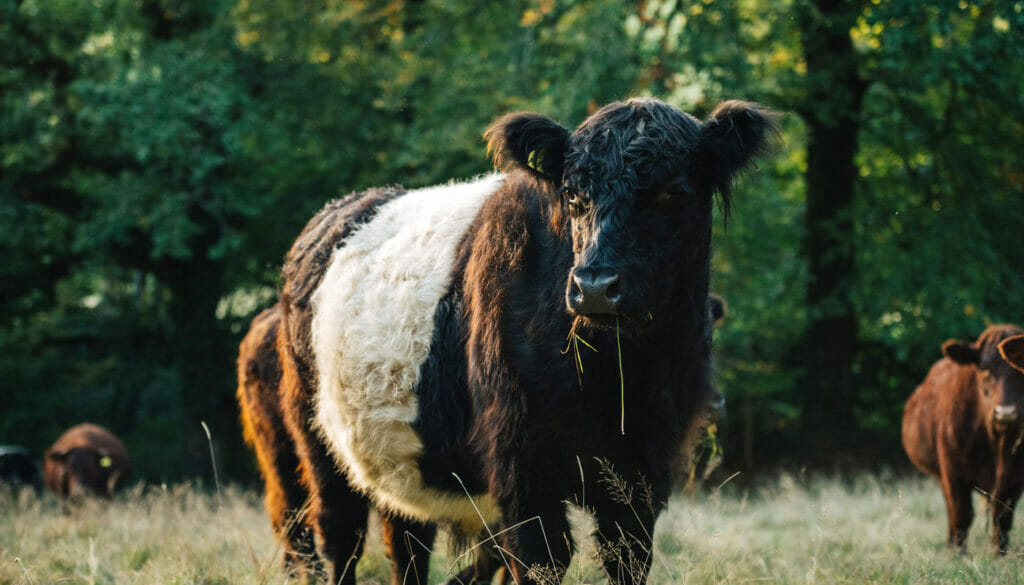
Treveddoe is a small working regenerative farm set in 90 acres of pasture and woodland, home to native-breed cattle, pigs and an abundance of wildlife.
Passionate about farming in a way that encourages nature to flourish, we are strong believers that farming our livestock through regenerative farming techniques can work in harmony with nature.
We are at the beginning of an exciting journey which aspires to create a rich, abundant landscape across the farm, and produce nourishing, healthy, high-welfare produce that simultaneously becomes a haven for wildlife.
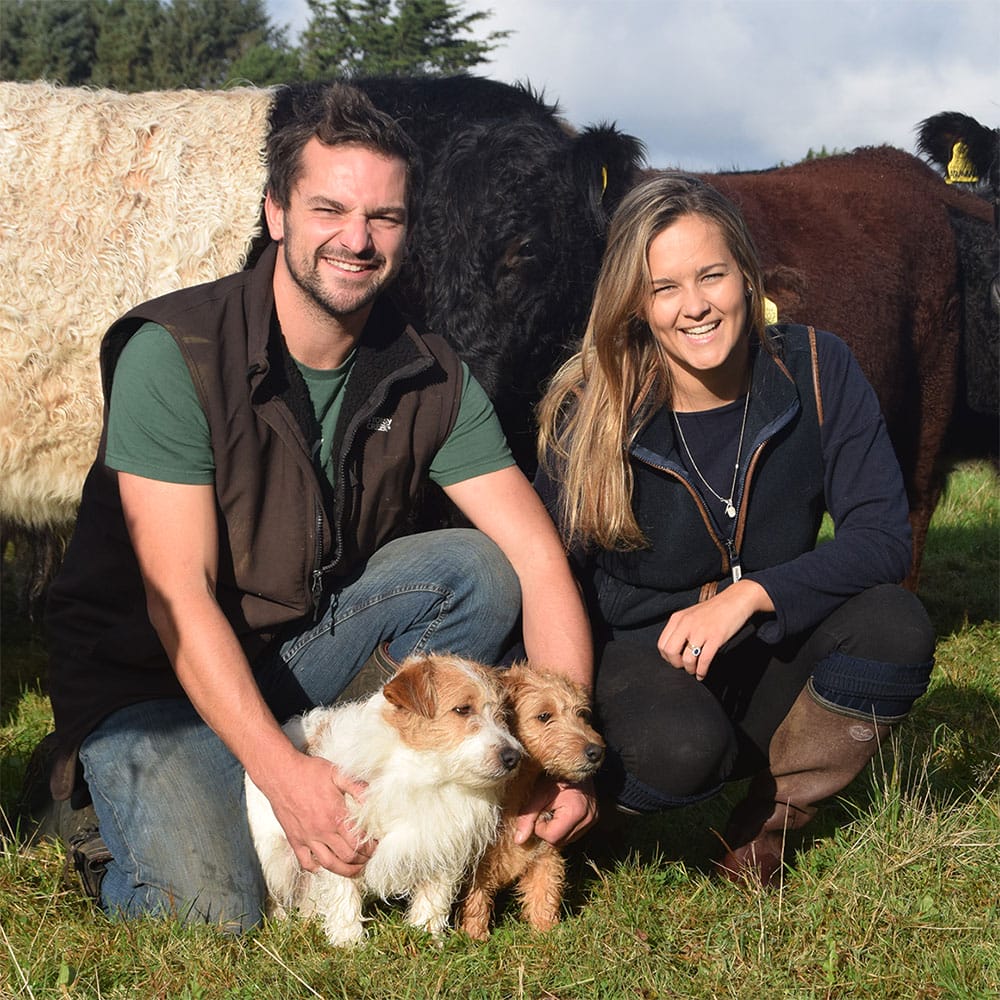
TREVEDDOE FARMERS BEN AND CLAUDIA FEATURE IN GROUND BREAKING FILM SIX INCHES OF SOIL
Ben and Claudia’s first year at Treveddoe Farm was followed and documented by an incredible documentary film.
The Cattle
We farm a small herd of traditional, native-breed Belted Galloway and North Devon cattle here at Treveddoe, chosen for their suitability to the regenerative system we operate here, the terrain, and climate in Cornwall.
Sourced from a conservation grazing herd, our cattle start their life at Goss Moor National Nature Reserve in Cornwall, where they are truly harnessed to manage the environment for nature. Their work continues when they arrive at Treveddoe.
The regenerative method of grazing management, known as ‘mob grazing’ is employed on the farm. The cattle are kept in a smaller area of a field by the use of temporary fencing, and moved on daily to a fresh area of pasture.
Long rest periods for the pasture is key to making this system work. During the ‘growing season’ the cattle will not come back to graze that area for 60 days. This allows that piece of land time to rest, grasses, legumes and herbs time to flower, set seed, and roots to recover and grow deeper into the soil.
These actions create a hugely positive impact on nature, providing habitat for an abundance of wildlife including small mammals, insects and pollinators, whilst improving soil structure, as the roots break any compaction. Amongst soil health enhancements and biodiversity gains, this system also improves water infiltration, meaning more rain is captured on farm.
The cattle live outdoors all year round. Being hardy, native breeds with thick hides and adapted fur coats, they are able to sustain the rain (of which we get a lot in Cornwall!) and thrive in the cold temperatures, favouring those far more than hot.
Keeping the cattle outside greatly reduces the inputs we need to produce food. We don’t need to buy straw, diesel for a tractor or employ contractors to spread the dung in the spring. Instead, during the winter or ‘non growing season’ the cows graze an area and will not return for 120 days!
During these months the pasture is supplemented with bales of hay that get rolled out like a carpet each morning. This hay is made from our species rich hay meadows in the summer, which are now incredibly rare in the UK.
By moving the cattle daily into fresh pastures, this eliminates the need to feed any concentrates or grains for them to grow more quickly, while the long rest periods mean we do not require the use of artificial fertilisers or sprays. As we are not reliant on these chemicals or imported feeds, it makes our business a lot more resilient to climate fluctuation and global markets. It also gives a huge boost to the health of our soil and biodiversity on the farm!
Read more about the incredible projects happening at Treveddoe Farm
buy our 100% pasture fed galloway beef produce

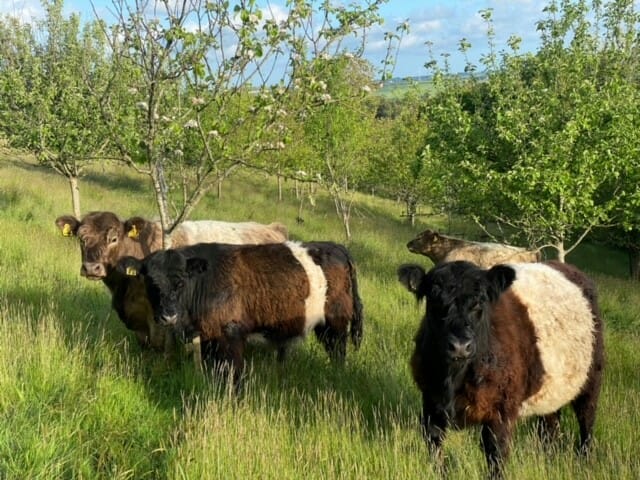
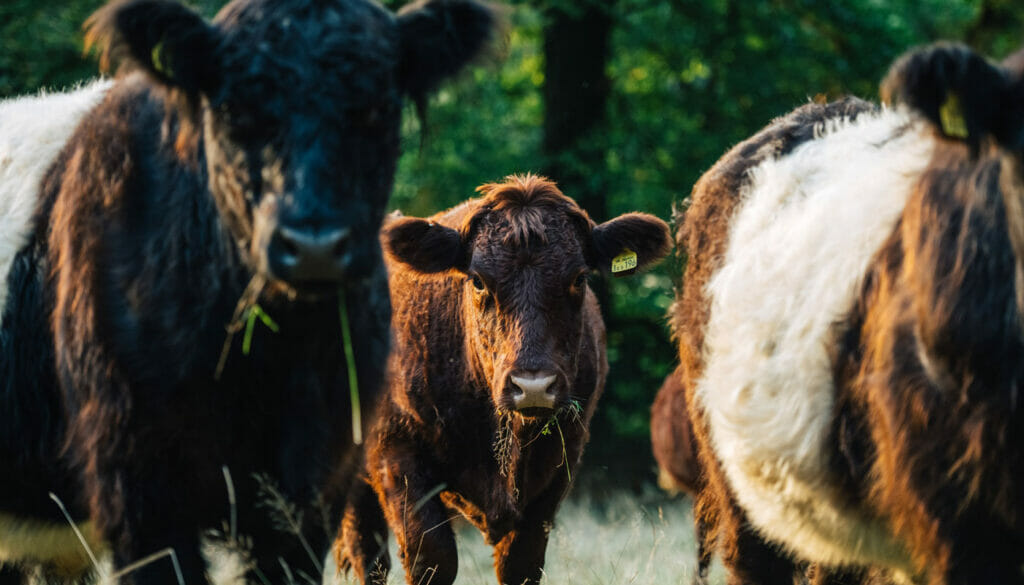
The Pigs
The pigs are managed in a similar nature friendly way to the cattle. They are rotationally grazed through our orchards and woodland – we like to refer to them as our ecosystem engineers!
Without disturbance the understory of the woodlands can become stale, but with the pigs rootling through, searching for acorns, apples and roots they encourage new plants to grow in the spring.
The areas the pigs graze will have rest periods of 6-9 months to let all the regrowth really establish itself. This encourages diversity and knocks back bracken or brambles that can smother anything trying to grow. #
The pigs have a small arc for shelter but with their thick hairy coats they are often out in the rain with not a care in the world. We love to see them being able to express their natural behaviour, and this is a key part of our high welfare system we aim for.
We feed them apples daily and suitable compostable bits – We like to think that this will help make the end product extra tasty too!


